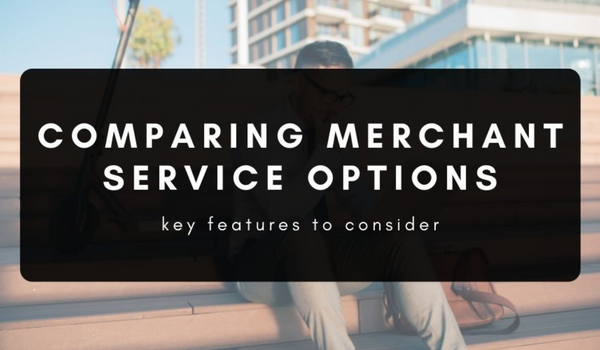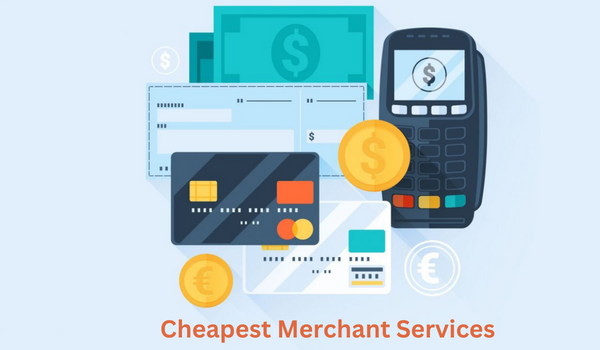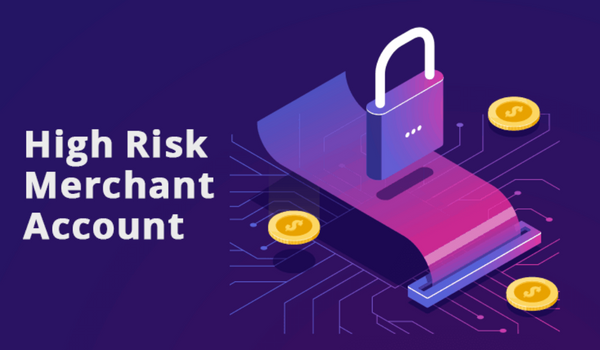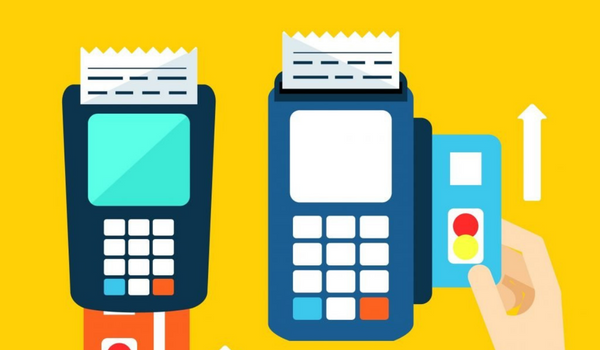
About merchant services credit card processing
Merchant services credit card processing is the process of accepting credit and debit card payments from customers for goods or services. This process requires several steps, including authorization, settlement, and funding.
Authorization: When a customer makes a purchase using a credit or debit card, the merchant must first obtain authorization from the card issuer to ensure that the customer has sufficient funds or credit to complete the transaction. This is typically done through a payment gateway, which connects the merchant's payment system to the card issuer's payment network.
Settlement: Once the transaction has been authorized, the merchant submits the transaction details to their payment processor for settlement. The payment processor then communicates with the card issuer to initiate the transfer of funds from the customer's account to the merchant's account. This process generally takes 1 or 2 business days.
Funding: Once the settlement process is complete, the funds from the customer's account are transferred to the merchant's account. Depending on the payment processor, these funds may be deposited into the merchant's bank account on a daily or weekly basis.
Merchants who wish to accept credit and debit card payments must establish a merchant account with a payment processor. This account will typically involve fees, including transaction fees, monthly fees, and per-transaction fees. The fees charged by payment processors can vary significantly, so merchants should compare the costs and services offered by different providers before selecting one.
The impact of emerging payment technologies on the merchant services credit card processing
Emerging payment technologies are having a significant impact on the merchant services credit card industry, as they offer new ways for customers to pay for goods and services. Here are some of the ways that these technologies are impacting the industry:
Mobile payments: Mobile payment technologies, such as Apple Pay and Google Wallet, allow customers to pay for goods and services using their smartphones or other mobile devices. This technology is becoming increasingly popular, particularly among younger consumers who are comfortable using mobile devices for a range of activities.
Contactless payments: Contactless payment technologies, such as RFID and NFC, allow customers to make payments by simply tapping or waving their payment card or mobile device over a payment terminal. This technology is becoming increasingly popular, in many countries across the world, where contactless payments are widely accepted.
E-commerce payments: E-commerce continues to grow in popularity, with more consumers shopping online than ever before. This has led to the emergence of new payment technologies, such as digital wallets and one-click checkout, which offer faster and more convenient payment options for online shoppers.
Integration with other technologies: credit card providers are also increasingly integrating with other technologies, such as artificial intelligence (AI) and machine learning, to offer more personalized and efficient payment processing services.
Overall, emerging payment technologies are reshaping the credit card industry, offering new ways for customers to pay and providing businesses with more efficient and convenient payment processing solutions. As these technologies continue to evolve, it's likely that we will see even more changes in the industry in the coming years.
The role of merchant services providers in facilitating credit card transactions
Merchant services card providers play a crucial role in facilitating credit card transactions for businesses. These providers are third-party companies that offer businesses the ability to accept credit and debit card payments from customers.
Here are some of the key functions that merchant services providers perform:
Credit card processing: Merchant services credit card providers handle the technical aspects of credit card processing, including authorizing transactions, settling payments, and ensuring that funds are transferred securely.
Payment gateway integration: Merchant services providers in California integrate with a business's payment gateway, which is the platform that connects the business's point-of-sale system or website to the credit card processing network.
Fraud prevention: Merchant services providers use sophisticated fraud prevention tools to detect and prevent fraudulent transactions, which protects both the business and the customer.
Chargeback management: In the event of a disputed transaction, merchant services providers manage the chargeback process, which involves resolving disputes and ensuring that funds are properly refunded or charged back to the customer's account.
Customer support: Merchant services providers offer customer support to help businesses resolve technical issues, answer questions about transactions, and troubleshoot any problems that arise.
Overall, merchant services credit card providers are essential partners for businesses that want to accept credit and debit card payments. They provide the technical infrastructure, fraud prevention tools, and customer support that businesses need to successfully process credit card transactions and increase their revenue.
The impact of credit cards on small business growth and revenue
Credit cards can have both positive and negative impacts on small business growth and revenue. Here are some ways credit cards can impact small businesses:
Increased purchasing power: Credit cards provide small businesses with greater purchasing power, enabling them to buy supplies, equipment, and inventory without having to pay for them upfront. This can help small businesses grow faster and take advantage of opportunities that they might not have been able to otherwise.
Cash flow management: Credit cards can help small businesses manage cash flow by allowing them to delay payment for purchases until the end of the billing cycle. This can help small businesses maintain sufficient cash reserves to cover operating expenses, pay bills, and invest in growth opportunities.
Rewards and cashback programs: Many credit cards offer rewards and cashback programs that can help small businesses save money or earn additional revenue. For example, a small business might use a credit card with a cashback program to earn money back on purchases they were already planning to make.
The importance of data security and PCI compliance in credit card transactions
Data security and PCI compliance are critical factors in credit card transactions, as they help protect sensitive information and prevent fraud. The Payment Card Industry Data Security Standard (PCI DSS) is a set of guidelines that outlines the minimum security measures that businesses must implement to protect credit card data. Here are some reasons why data security and PCI compliance are important:
Protecting sensitive information: Credit card transactions involve the exchange of sensitive information, including cardholder names, card numbers, and security codes. If this information falls into the wrong hands, it can be used to commit fraud or identity theft. Data security measures, such as encryption and secure storage, help protect this information from unauthorized access.
Reducing the risk of fraud: Hackers and fraudsters are constantly looking for ways to steal credit card information and use it for fraudulent purposes. PCI compliance helps businesses implement the security measures needed to reduce the risk of data breaches and other forms of fraud.
Maintaining customer trust: Customers expect businesses to keep their sensitive information secure. If a business experiences a data breach or other security incident, it can damage customer trust and harm the business's reputation. By implementing strong data security measures and maintaining PCI compliance, businesses can demonstrate their commitment to protecting customer data.
Avoid penalties and fines: Businesses that process credit card transactions must comply with PCI DSS guidelines. Failure to comply can result in penalties and fines, which can be expensive and damaging to the business's bottom line.
To summarize, data security and PCI compliance are critical components of credit card transactions. By implementing strong security measures and maintaining PCI compliance, businesses can protect customer data, reduce the risk of fraud, maintain customer trust, and avoid penalties and fines.
Analyzing the economic impact of credit card processing fees on consumers
Credit card processing fees have a significant economic impact on consumers, as they can increase the cost of goods and services and ultimately impact consumer spending. Here are some ways in which credit card processing fees impact consumers:
Higher Prices: Businesses that accept credit cards often pass on the cost of processing fees to consumers in the form of higher prices for goods and services. This means that consumers end up paying more for the same products and services, which can impact their overall spending and budget.
Limited Payment Options: Some businesses may choose to only accept cash or debit cards to avoid the high fees associated with credit card processing. This limits payment options for consumers and may make it more difficult for them to make purchases.
Credit Card Rewards: Credit card rewards programs offer benefits to consumers, such as cashback or rewards points, but these programs are often funded by the processing fees charged to businesses. While these rewards can benefit consumers, they can also lead to higher prices for goods and services as businesses work to offset the costs of these rewards.
Overall, the economic impact of credit card processing fees on consumers can be complex and varied, with higher prices and limited payment options being two of the most common effects. While credit card processing fees are a necessary cost for businesses, finding ways to minimize these fees and balance the needs of both businesses and consumers is essential for a healthy economy.
Conclusion
The future of merchant services credit card processing is likely to be shaped by several factors, including advances in technology, changing consumer preferences, and regulatory changes. Merchant services play a vital role in facilitating credit card transactions for businesses of all sizes. It's important to choose a reliable merchant services provider that offers competitive rates and fees, as well as quality customer support.







